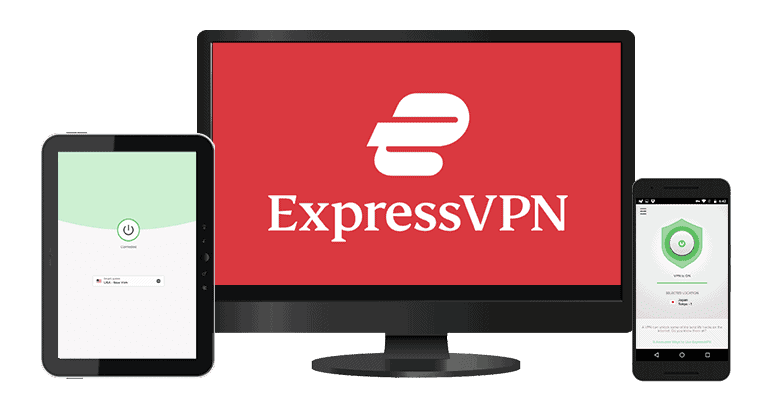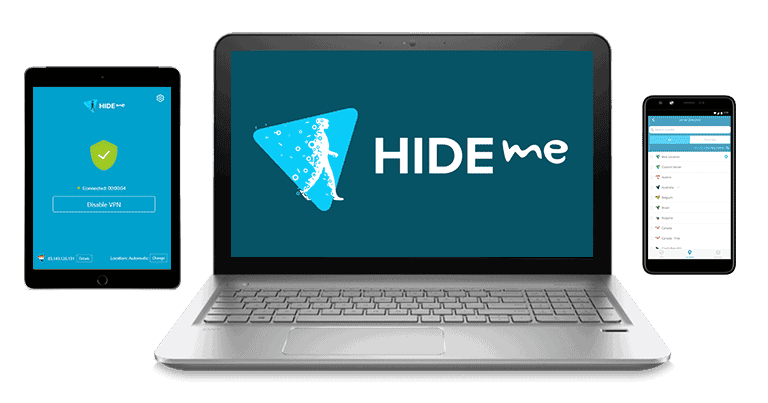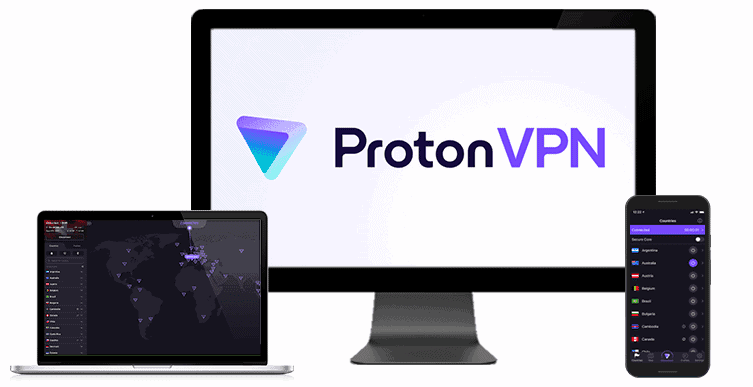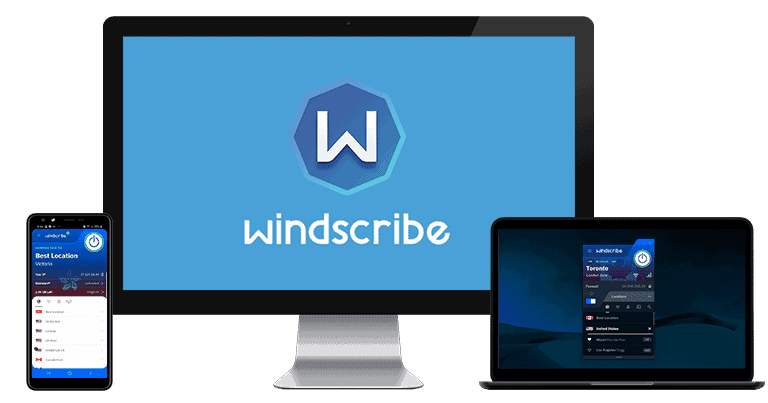
Updated on: November 12, 2024
Short on time? Here’s the best free VPN for streaming in 2024:
- 🥇 ExpressVPN : It doesn’t have a free plan, but all plans are backed with a 30-day money-back guarantee. Works with 100+ streaming apps, including Disney+, Max, and 15+ Netflix libraries, has the fastest speeds on the market, and offers a smart DNS feature. Comes with advanced security features and user-friendly apps.
I don’t recommend using free VPNs for streaming, as they often don’t work with streaming sites and apps and have slow speeds. What’s more, a lot of free VPNs limit data usage and keep user logs, and some even force you to watch ads to get free bandwidth.
Instead, I recommend using a paid VPN, like ExpressVPN. It can access 100+ streaming sites and maintains the fastest speeds on the market. It also allows unlimited data, and you can use it on any device, including smart TVs and gaming consoles.
Still, if you insist on using a free VPN, all the VPNs on this list are good picks. They work with top streaming platforms almost all of the time, maintain good speeds for streaming in HD, and some even have decent data caps. Editors' Note: ExpressVPN and this site are in the same ownership group.
Quick Summary of the Best Free VPNs for Streaming
🥇1. ExpressVPN — Best Overall VPN for Streaming
ExpressVPN is my top pick for streaming in 2024. It doesn’t have a free plan, but it has the best streaming support on the market — it can access 100+ streaming sites, including 10+ Netflix libraries, as well as several Max, Amazon Prime, and Disney+ libraries. It also works with streaming services like Crunchyroll, DAZN, Sling TV, and Apple TV+.
Another reason why it’s excellent for streaming is that ExpressVPN is the fastest VPN out there thanks to its Lightway protocol. This protocol’s lightweight code makes it faster than most protocols and uses less of your battery.
In my speed tests, I barely even noticed I was connected to a VPN. All HD and 4K videos played right away, and I didn’t experience any buffering, even when I connected to really distant servers.

I found it super convenient that ExpressVPN’s connections are very reliable. ExpressVPN’s Lightway handles network fluctuations well and maintains a stable connection even when switching between Wi-Fi and mobile data. My connection to the VPN servers never dropped (which was the case with some free VPNs), and I never had to wait for more than a couple of seconds to get connected. This wasn’t the case with free VPNs where I had to wait up to 2–3 minutes for the VPN to establish a connection to the free servers.
I really like its smart DNS feature, called MediaStreamer, which allows you to stream on devices that don’t have support for native VPN apps, like certain smart TVs and gaming consoles. The smart DNS feature hides your location but doesn’t encrypt your traffic — it’s less secure but can access top streaming sites.
ExpressVPN allows 8 simultaneous connections, and it has a router app, which allows you to connect all of the devices in your household to the VPN — many free VPNs, like hide.me and Proton VPN, limit you to 1 device and don’t work with routers.
ExpressVPN has obfuscation on servers in 105 countries, allowing you to access streaming sites on restricted networks, like at school or work. This also allows the VPN to access streaming services in countries that ban them, like in China or Russia.
You get tons of extra useful features for streaming, as well. ExpressVPN comes with a free password manager (ExpressVPN Keys). You can use it to securely store your login credentials for your streaming platforms and auto-fill your login information to instantly access all of your streaming sites and apps.

ExpressVPN has plans that start at $4.99 / month. The long-term plans come with extra months for free, and all plans are backed with a 30-day money-back guarantee.
Bottom Line:
ExpressVPN is the best VPN for streaming out there, as it can access 100+ streaming sites, including tons of Netflix, Disney+, Amazon Prime, and Max libraries. It has the fastest speeds on the market for streaming, its connections are super reliable, and there are extra features like a password manager for your streaming accounts. Although it doesn’t have a free plan, it backs each purchase with a risk-free 30-day money-back guarantee.
Read the full ExpressVPN review
🥈2. hide.me — Unlimited Bandwidth for Streaming
hide.me’s free plan includes unlimited bandwidth for streaming, so you won’t have to worry about running out of data while watching your favorite shows and movies. However, the free plan works with streaming sites like Netflix and Amazon Prime only about half of the time, so if you want consistent and guaranteed streaming support, consider getting ExpressVPN.
hide.me’s free servers are in 5+ locations, including the US and the UK, as well as France, Germany, the Netherlands, Switzerland, and Finland. This is good coverage for streaming in Europe for free, but you’ll be better off with Windscribe for streaming in the US and Canada since you also get more server locations to choose from in these regions.

In my speed tests, hide.me’s speeds were good for streaming — it only took around 2–3 seconds for HD videos to load with very minor buffering, both with WireGuard and IKEv2. However, hide.me restricts speeds on the free plan, so if you’re looking for super-fast speeds, check out ExpressVPN.
The biggest downside for me is that hide.me occasionally had trouble connecting to a free server. This didn’t happen that often in my tests, but I had to wait for up to a minute for it to establish a connection a couple of times to then be able to stream with the VPN, which was pretty annoying.
hide.me’s free plan only allows 1 device connection, and there’s no router support, preventing you from streaming on devices that lack a VPN app, like a Roku device, a non-Android smart TV, or your gaming console.
Upgrading to hide.me’s paid plans ($2.39 / month) get you access to servers in 58 countries, its streaming-optimized servers in 10+ countries, and more. Also, the provider has a 30-day money-back guarantee.
Bottom Line:
hide.me’s free plan includes unlimited data for streaming, but it doesn’t work with streaming sites 100% of the time. It also comes with 5+ server locations to choose from and only allows you to connect 1 device at a time. The paid plans provide a much larger network of servers, including its streaming-optimized servers, and are backed with a 30-day money-back guarantee.
🥉3. Proton VPN — Privacy-Friendly Free Plan With Unlimited Data for Streaming
Proton VPN has a great free plan with unlimited data for private streaming, in part thanks to its open-source apps that make it easy to trust (anyone can inspect the code for vulnerabilities). However, streaming isn’t guaranteed to work 100% with the free plan. For example, it works with Netflix only sometimes. If that’s a deal-breaker for you, consider getting ExpressVPN instead.
The free plan limits you to servers in 5 countries, including the US, the Netherlands, Romania, Poland, and Japan, and you can’t choose which server to connect to — Proton automatically connects you to the best server based on server crowding and your location, which isn’t always ideal for streaming. To change location, you’ll have to disconnect and reconnect to the VPN. For comparison, you can connect to any free server location available with both Windscribe and hide.me.

Proton’s free plan’s speeds are pretty good, though. During my speed tests, HD videos started playing in 2–3 seconds with little to no buffering. However, Proton’s speeds are still no match for ExpressVPN’s speeds.
You get its Alternative Routing for free, too, which can help you connect to Proton VPN’s service if it’s blocked. It doesn’t work in restrictive countries but can help you get around restrictions on networks like at school and work for streaming securely. Still, note that you can only connect 1 device at a time on the free plan, and there’s no router support for free users.
Proton VPN has a paid version that starts at a reasonable $2.99 / month. The paid plans add streaming support and servers in 112 countries. There’s also a prorated 30-day money-back guarantee for all plans.
Bottom Line:
Proton VPN’s free plan offers unlimited bandwidth for streaming, but no guaranteed streaming support and only 5 free server locations. Its speeds are good for streaming in HD, and it can even work on restricted networks. The paid plans come with guaranteed streaming support and a prorated 30-day money-back guarantee.
Read the full Proton VPN review
4. Windscribe — Good Free VPN for Reliable Streaming
Windscribe has reliable streaming support. It consistently works with several Netflix, Amazon Prime, Max, and Disney+ libraries, and can access BBC iPlayer.
It allows unlimited connections, so you won’t have to log off of one device to stream on another, but you only get 10GB of free data per month (2 GB if you don’t verify your email address), which equaled only about 8 and a half hours of streaming time in my tests — ExpressVPN allows unlimited data.

The free plan gives you access to 10+ server locations, including a server in the central US, US East, and US West, 2 server locations in Canada (the East and West part), and some servers in Europe, including in Germany and France, and even 1 in Hong Kong, which is pretty great coverage for a free VPN.
The provider’s free plan has decent speeds for streaming, as HD videos in my tests loaded in about 4–5 seconds and there was minimal buffering throughout the videos. Still, it’s much slower than ExpressVPN.
I didn’t like that I had to wait for up to 1 minute for the VPN to connect to a free server — this is probably because the free servers are overloaded and slower to respond. Sometimes, I also had to switch between VPN protocols to get the most reliable connection. Windscribe offers Wireguard, which is fast, and IKEv2, which was more stable in my tests.

You even get the Stealth protocol on the free plan, which allows the VPN to access streaming sites on networks like at school or work that ban sites like Netflix. But, note that this will eat your free VPN traffic a lot faster and your connection will further slow down. If you need a VPN to access a streaming service on a restricted network (or even in a restrictive country), ExpressVPN is a much better choice.
Finally, I like Windscribe’s Proxy Gateway feature, which lets you set up a device (like your PC) on your local network as a proxy server, so you can route traffic from your smart TV or streaming device through Windscribe’s servers and access sites like Netflix. It’s pretty easy to configure, but keep in mind that this setup can consume your free data quickly.
Windscribe’s paid version starts at $3.00 / month and offers servers in 68 countries, and unlimited data. However, it only offers a 3-day money-back guarantee.
Bottom Line:
Windscribe’s free plan works with popular streaming sites, has servers in 10+ countries, and offers unlimited connections, but it only allows up to 10 GB of data per month. Its free servers’ speeds are good for streaming in HD, and you get access to its obfuscation feature that can access streaming sites on restricted networks. The provider’s paid version comes with servers in more countries and unlimited data, but it only has a 3-day refund.
Read the full Windscribe review
5. Avira Phantom VPN — Minimalistic, User-Friendly VPN for Streaming
Avira Phantom VPN is a great choice for VPN beginners wanting to stream securely. To connect, you only have to click on the Connect button, and the VPN will automatically select the nearest server to your location. Plus, it has unlimited connections, so you can stream on as many devices as you want for free.
The VPN is honestly a better choice for streaming on mobile since the mobile apps let you choose a specific server while the desktop apps don’t let you choose your own server. There’s no router support, so you won’t be able to stream on other devices like smart TVs and gaming consoles.

It has servers in 37 locations and works with top streaming apps, including multiple Netflix libraries. However, ExpressVPN works with way more platforms, so it’s a better choice for streaming a variety of platforms.
Its speeds on the free plan are pretty good for streaming. I was able to watch videos in HD with minimal buffering. But, you only get up to 1 GB of data per month if you make an account, so you won’t be able to stream more than a couple episodes of a show. Proton VPN allows unlimited hours of streaming since it doesn’t limit your data.
Avira Phantom VPN has affordable premium plans starting at $5.99 / year. They’re backed by a 60-day money-back guarantee.
Bottom Line:
Avira Phantom VPN is decent for streaming. It’s good for beginners, has great server options on mobile, delivers good speeds, and works with top streaming platforms like Netflix. But, it has very limited data. Its paid plans have a 60-day money-back guarantee.
Read the full Avira Phantom VPN review
Quick Comparison Table
Editors' Note: ExpressVPN and this site are in the same ownership group.
Testing Methodology: Comparison & Ranking Criteria
I followed our strict testing methodology to find the best free VPNs for streaming. I tested each VPN to make sure it meets high standards in different aspects such as streaming support and data usage limits. Here’s a more detailed breakdown of the factors I considered:
- I evaluated each VPN’s streaming support. Every VPN on my list works with top streaming sites and apps, including the 100% free VPNs I recommend.

- I checked every VPN’s data usage limit. Streaming is data-intensive, so a high data cap is a must. Most of the free VPNs I recommend offer unlimited bandwidth or at the very least come with 10 GB per month, allowing for a few hours of SD or HD streaming without interruption.
- I tested their speeds. All VPNs slow down your internet speeds due to the encryption process, so it’s very important to find one that minimizes this impact to stream without interruptions. In my tests, the fastest was ExpressVPN.

- I looked for strong security features. The VPNs on this list come with industry-standard features such as 256-bit AES encryption, a no-logs policy, and a kill switch that protects your data by disconnecting your internet if the VPN fails, so your IP address remains anonymous from the streaming sites you use.
- I considered the value their paid plans offer. All the VPNs on this list have affordable, value-packed paid plans as well as a money-back guarantee in case you decide to upgrade to the paid version.
Risks & Disadvantages of Using a Free VPN
- No streaming support. Many free VPNs don’t have streaming support. If you plan on streaming a lot, I recommend getting a premium VPN like ExpressVPN since it works with 100+ streaming services.
- Data caps. Free VPNs usually put a cap on how much data you use on a daily and monthly basis. If you want to use a free VPN with unlimited data, I recommend getting Proton VPN.
- Slow speeds. Free VPNs often provide slower speeds than paid vendors. What’s more, many free VPNs throttle your speeds as well, which negatively impacts your streaming.
- Limited server network. A majority of free VPNs only offer limited server networks, making it challenging to find local servers and achieve fast speeds. The limited network could also force you to use congested servers, potentially reducing your speeds further.
- Poor security features. Many free VPNs lack essential security features like a kill switch or strong encryption. Without these security features, a third party could track your browsing activity. Luckily, all the VPNs on this list come with top-notch security features.
Free vs. Paid VPNs
The free VPNs I recommend for streaming access lots of top streaming services, offer decent speeds for watching videos in HD and protect your privacy and security when you’re watching your favorite shows online. However, there are a lot of crucial differences between free and paid VPNs that can impact your streaming experience.
With free VPNs, there’s always a catch — they often provide limited server coverage, which means they won’t be able to access streaming services that are geo-restricted to specific locations, limit how much bandwidth you can use, or don’t give you access to some convenient features for streaming. In a worse scenario, you may only be able to get very slow speeds that make streaming impossible or even worse if the VPN doesn’t protect your security and privacy online while streaming.
The good news is I never recommend VPNs that might compromise your privacy and security, so every VPN on my list comes with essential security features, such as 256-bit AES encryption, a kill switch, and a no-logs policy. That being said, each free VPN I list here isn’t ideal.
For example, Windscribe’s free plan has good streaming support and includes access to servers in 10 countries, but you only get 10 GB of data per month, which is only enough for around 8 and a half hours of streaming time. On the other hand, Proton VPN’s free plan offers unlimited data but restricts you to servers in just 5 countries and works with streaming sites only half of the time. Finally, hide.me and Proton VPN only allow you to use them on 1 device, so you’ll have to log off and log in every time you switch between your PC and mobile for streaming.
In contrast, paid VPNs that have good streaming support can access at least 30+ streaming services, come with unlimited data, large server networks that can access different international streaming libraries, and fast speeds to watch both in HD and 4K without any buffering. On top of that, top VPNs for streaming allow multiple devices simultaneously, so your entire family can stream securely.
Free VPNs for Streaming to Avoid
- Hola VPN. Hola VPN is a P2P VPN, which means it assigns you another user’s IP address and assigns yours to someone else. This is super dangerous as a bad actor can use it for criminal activities. It also keeps users’ logs, doesn’t encrypt your traffic, and has a history of leaking user IP addresses.
- SuperVPN. SuperVPN logs a lot of your data, including your IP address, operating system, and browser type. It lacks basic security features, and there’s no way to reach its customer support. On top of that, SuperVPN had a data breach that exposed 133 GB worth of data, including users’ IP addresses, email addresses, and geo-locations.
- Phone VPN. Phone VPN only encrypts your data. It doesn’t hide your IP address, so it can’t access any geo-restricted streaming services or libraries. Also, it lacks any VPN features, like a kill switch.
- VPN Gate. VPN Gate is a volunteer-run VPN network lacking consistent security measures and privacy protections. There is no accountability or guarantee of privacy
- Psiphon. Psiphon is more of a proxy than a VPN. It doesn’t offer any encryption and it logs user data, leaving you with practically zero protection online.
- FlashVPN. FlashVPN is more of a proxy. It lacks encryption, and there’s very little transparency about its data logging practices. The app crashes often, too, and its performance is overall poor.
- TouchVPN. TouchVPN collects your IP address. What’s worse, it keeps track of the websites you visit and may even share this data with third parties to show you ads.
- Yoga VPN. Yoga VPN doesn’t encrypt your traffic, comes with intrusive ads, and has poor security practices. It collects significant user data and shares it with third parties.
- CrossVPN. CrossVPN isn’t private at all — it collects a lot of information and it shares it with third parties for profit.
- TuxlerVPN. It logs your website activities, browser information, and contact information, and can share all of this data with third parties for business purposes.
Top Brands That Didn’t Make the Cut
- TunnelBear. TunnelBear offers a free plan that gives access to servers in 47 countries, and it also works with streaming sites. However, it has a restrictive data of 2 GB per month, which won’t be enough for most streaming activities.
- Hotspot Shield. Hotspot Shield comes with a free plan that allows unlimited data and also provides decent speeds (even though it limits you to 2 Mbps). That said, the free plan doesn’t support streaming.
- PrivateVPN. PrivateVPN works reliably with top streaming sites, has minimalistic apps that are great for beginners, and provides fast speeds. However, it doesn’t have a free plan.
Frequently Asked Questions
What’s the best free VPN for streaming?
ExpressVPN is my top choice for streaming, as it works with 100+ streaming sites and has the fastest speeds on the market. It also has top-notch security features and user-friendly apps. While it doesn’t offer a free plan, all plans are covered by a 30-day money-back guarantee, so you can test it out risk-free.
Do free VPNs work with streaming sites?
Most free VPNs have poor streaming support. They don’t work with many streaming sites and have slow speeds that interrupt the streaming experience. Plus, free VPNs put a cap on how much data you use daily and monthly, which restricts how much you stream.
The free VPNs mentioned in this article provide decent streaming support, though I still recommend getting a paid provider like ExpressVPN in the end since you get a VPN that consistently works with tons of streaming platforms.
Can you trust a free VPN?
Free VPNs aren’t completely safe. Many free VPNs lack essential security features, like leak protection, a kill switch, or bank-grade encryption. Instead, I recommend purchasing a premium VPN, like ExpressVPN. It has all essential security features and also comes with full leak protection, RAM-only servers, and an audited no-logs policy.




